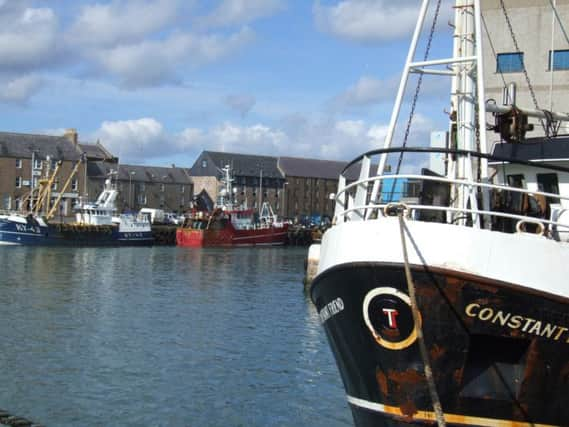Europe’s new fishing rules are absolute madness


The independence referendum was of major significance for Scottish fishing, given that it held the potential for uncertain and abrupt changes in our relationship with Europe. However, we now have the decision, the path has been chosen and it’s time to focus hard on our future.
While we know where we stand constitutionally in the UK, Europe remains hugely important for us because of the Common Fisheries Policy (CFP). Our industry is wrapped very tightly in the regulations comprising the policy – almost every aspect of the business has a governing rule, and, coming our way from the revision of the CFP (the new one has been in force from 1 January this year) are some serious challenges.
Advertisement
Hide AdAdvertisement
Hide AdBut first, it is worth considering the current status of our fish stocks and how we arrived at our present position. The overall picture in the north-east Atlantic at the moment is actually very good, the result of a long recovery. Fifty years ago, many people innocently thought that fish stocks in the area of the northern continental shelf were simply there for the taking. For the North Sea whitefish fleet, there was a largely unexplained natural phenomenon known as the “gadoid outburst” (cod, haddock, whiting, saithe) where fish stock levels were unusually high. This in turn encouraged the expansion of the fishing fleet, with enthusiastic government and European support.
However, about 25 years ago the graphs showing fishing fleet capacity and the abundance of fish crossed over and started growing apart in the wrong direction. There followed a period of blood-letting in the industry of about 15 years, with the fleet shrinking steadily. For the last ten years or more, the crucial measurements affecting fish stock health – “fishing mortality” or the amount of fish removed from the sea – have been moving consistently in the right direction, as have the corresponding graphs of “biomass” or catchable fish in the sea. This all means that we should be able, theoretically, to look forward to a future in which the stocks continue to thrive and the fleet can sustainably catch more. Paradoxically, however, this is not the case because of the challenges the unwieldy new CFP still presents.
Under the previous CFP, the engine which drove the overall stock recovery was fleet reduction, which was bound to have the desired effect, although the pain caused to our coastal communities was immense. Other measures were introduced, most notably limitations on fishing days at sea. With the benefit of hindsight, a lot of these complex regulations were overthought, counterproductive and wrong-headed. For example, fishing day limits aimed at reducing the fishing pressure on cod had the perverse effects of forcing fishermen to work fishing grounds harder that were closer to home – not at all the desired result.
These rules, while well- intentioned, did not really bring any benefit. Cack-handed regulation has resulted in ineffective fisheries management for the last two decades – and it seems that there is more to come in the shape of the forthcoming “discards ban”.
What this effectively means is that all fish caught by a vessel has to be retained on board and counts against your quota, no matter the size, species or its commercial importance. It sounds great in principle and no-one abhors dumping over-quota or undersized fish more than fishermen.
But all this has to be put in the context that our fishermen have already dramatically reduced discards through the use of much more selective nets and other measures. At the moment we don’t even know how the new rules are going to work and as things stand, if a boat suddenly reaches its quota of one species in a mixed fishery, then it will have to stop fishing – even though it still has plenty of quota for its other main target species. This is absolute madness and has the potential to devastate our industry for very little conservation gain.
There needs to be a flexible and sensible approach to implementing a discards ban. Whether this will happen is another matter, but it would be a refreshing change if all fisheries regulation was implemented in a more commonsense way, learning from the mistakes of the past and taking into account regional variances of fisheries. We fish to feed the world and it is an important economic activity. If you remove the viability of fishing vessels through bad regulation, the industry dies and with it a valuable food resource.
• Bertie Armstrong is chief executive of the Scottish Fishermen’s Federation www.sff.co.uk